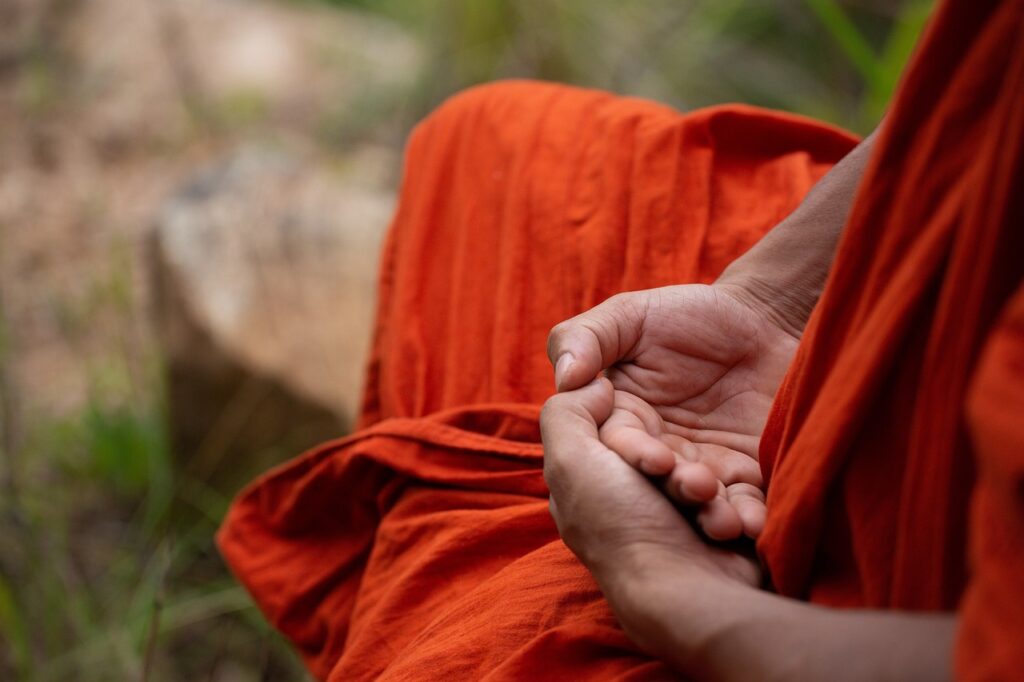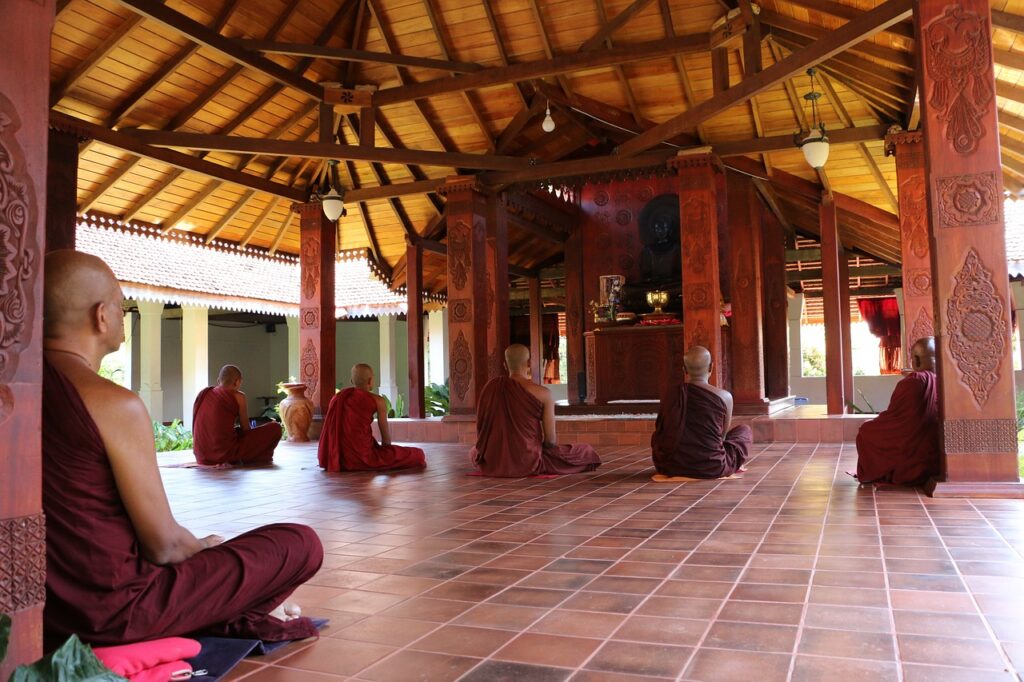Why did I become a Buddhist monk?
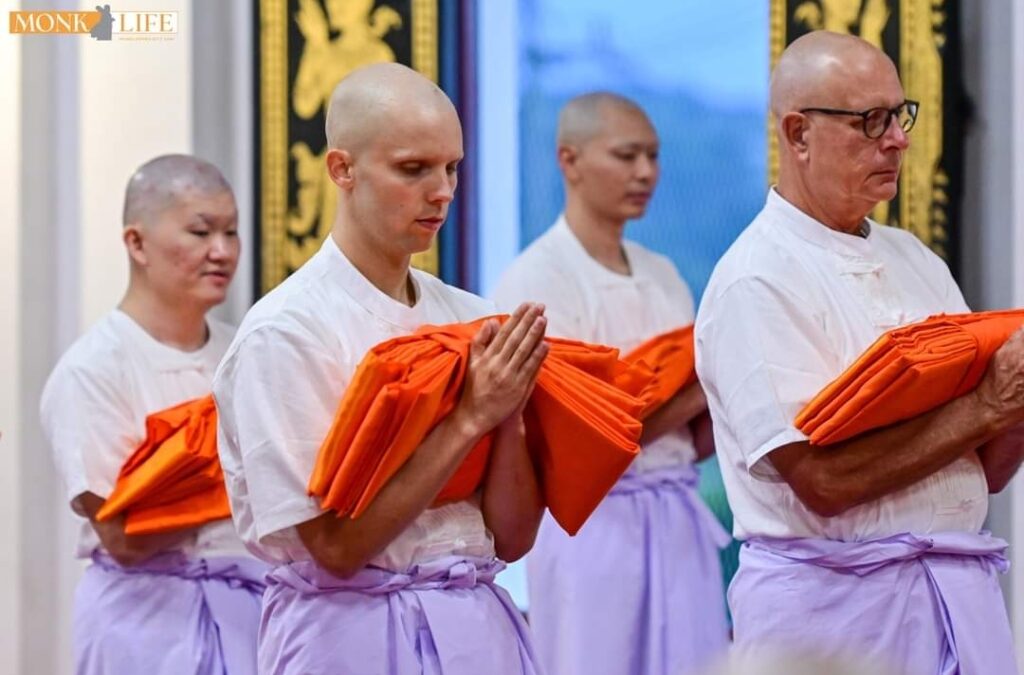
Why did I become a Buddhist monk?
“Look not for refuge in anyone besides yourself.”
1. Intro
I became a Buddhist monk twice, for four months in total. To do so, I went to a Buddhist monastery in Thailand, somewhere between Chiang Mai and Pai. I lived there for three months. The monastery was located in the middle of the jungle, with gigantic spiders, snakes, and the like. I slept in a small tent and had to wake up at 4:30 AM every day. When I returned and got back to my ‘regular’ life in The Netherlands, the question I got asked most was: ‘Why did you do it?’ Why put yourself through all that when you have such an easy and comfortable life here? What’s the appeal? That’s exactly what this article ‘Why did I become a Buddhist monk?’ is going to be about. I hope it brings some sort of value to you. Without further ado, let’s get into it!
2. My story
2.1 Inner turmoil
In my early twenties I was living a very ‘ordinary’ life, not much happened really. First I went to school, then to university, and then I got various typical office desk jobs, mostly within tech. I had a few hobbies, like football, snowboarding, going out with friends, etc. So from the outside perspective, I was living a very decent, and quite typical lifestyle, my circumstances were definitely not bad. My inner world was a different story though.
2.1.1 Thoughts running around
On the inside, I actually felt very disconnected from the world around me. That was because I was completely and utterly consumed by my own thought patterns. The thoughts that kept rambling through my mind were almost all negative and self-defeating. I had a hard time enjoying any of the activities that used to give me so much joy, like playing football or watching a movie. There was just this constant unease lurking underneath. The only moments where I was able to momentarily escape my overly active- and critical mind were the times when I got drunk, which isn’t the best long-term strategy. Life just seemed very bland and meaningless.
2.1.2 Stressed out
The biggest contributor to my downward spiraling thoughts, I believe, (retrospectively,) is that I was quite a vain guy. A bit too obsessed with external looks, while at the same time, my hair was thinning from a very young age. Not a great combination… The insecurity that ensued was crippling. I was afraid that if I lost my hair It would completely ruin my life. I thought people would look at me differently and no girl would ever be interested in me if I went bald. Basically, I felt that I was losing my identity through losing my hair.
These thoughts led me to become very afraid and stressed about the prospect of losing more hair. I got extremely stressed about being stressed. It is a nasty downward spiral that seems unsurmountable when you’re caught up in it. The spiral kept repeating and strengthening its grip over me. You could say I had an early quarter-life crisis.
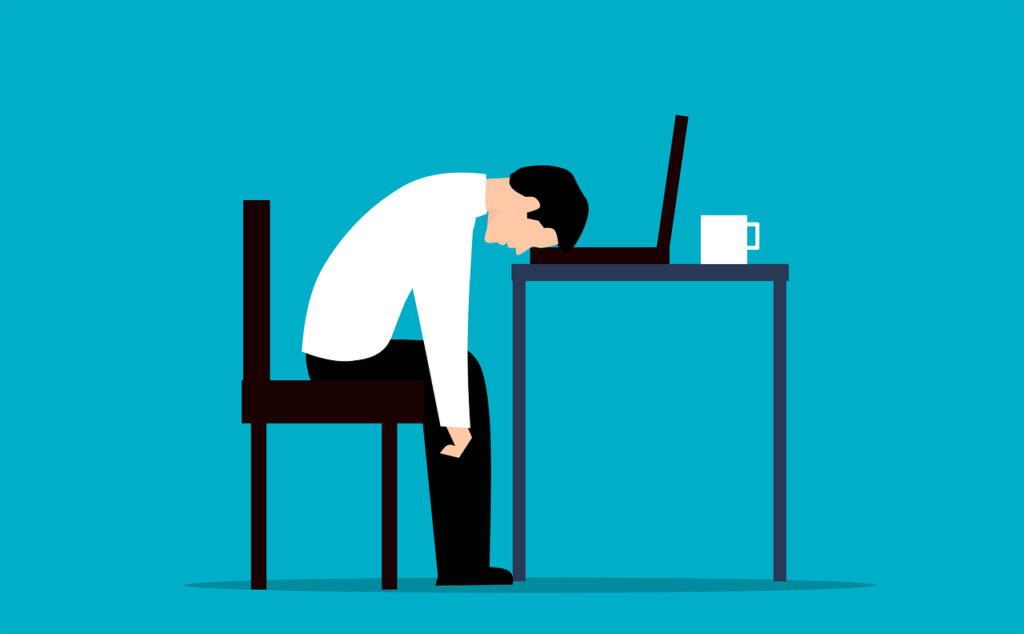
The negative thoughts had such a strong hold on me that it became harder and harder to function properly in the world. I tried going to psychologists a few times but it just caused me uncontrollable stress. Going to the supermarket already felt like such a big and scary thing, let alone opening up my Pandora’s box to a complete stranger. After the girl I was dating at that time inevitably broke up with me, I was at an all-time low. At that time being in a relationship seemed like the one good thing I had left in my life. When it ended, all that remained was me with my own tormenting thoughts. I hit rock bottom and I knew I had to do something.
2.2 Getting back up
Somehow I had the feeling that my situation didn’t have to define me, that I could get out of this negative thought pattern, and that I could go back to enjoying life again. I still remembered what it was like to truly enjoy life, like kids do, without worries and without an overactive mind. I was determined to get back to that point I just didn’t know how.
A friend of mine knew I was down bad and lent me a book called: Helweek. A no-nonsense, gritty self-help book through which I found the concept of self-improvement. I was immediately hooked. Over the next few years I dove deep into self-improvement, devouring one book after the other. The main thing it did for me was to help me realize that I could take matters into my own hands. I learned that I didn’t have to feel like I was the victim of my circumstances and that I had the power to drastically change my life. The grind- and growth mindset of my favorite podcast at the time: Impact Theory, resonated with me deeply. I got out of my funk through self-discipline.
The podcast and books taught me vital lessons about improving my diet, sleep, mindset, and so much more that I carry with me to this day. By implementing a lot of the stuff I’ve learned I became more disciplined, mentally sharper, healthier, fitter, and happier. The script in my head flipped from mainly negative to mainly positive. It felt like I had found the pot of gold at the end of a rainbow.
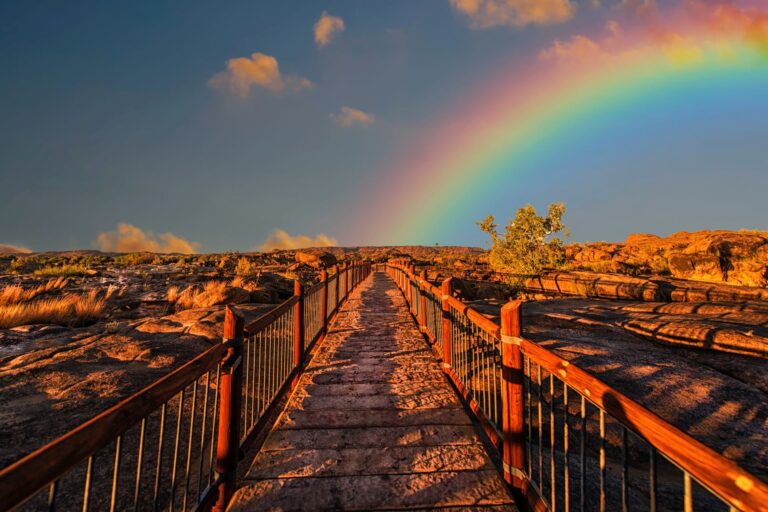
3. My meditation journey
3.1 Finding meditation
Thanks to my interest in self-improvement, I came across the beautiful practice of meditation. On the podcast Impact Theory, many guests came on who seemed very wise, eloquent, and well-spoken. They were all endorsing meditation and/or mindfulness. The likes of Sadhguru, Jay Shetty, Tony Robbins, and more. They were all tapping into some source of peace and insight that I wanted a piece of. I decided to try it out for myself.
I remember the first few times very well. After laying out a blanket on my bedroom floor, I sat there with my knees pretty much all the way up in my armpits. I was very tight and tense which made it very uncomfortable to sit on the floor without any distractions. So the first two times I tried it, I really did not like it. I was physically very uncomfortable and I was struggling with my overactive mind. For some reason though, I didn’t quit, I kept at it.
The third time I tried meditation, with the guided meditation video featured below, everything changed for me. I remember it vividly as there was a lot of trapped emotion that was suddenly released. I was suddenly able to surrender to the moment and could finally release a lot of tension and stress that had been building up in my body for years. Tears of joy and relief started streaming down my face while I smiled, knowing that I stumbled upon something profound, even better than a pot of gold. At that moment I realized my (negative) thoughts didn’t have to define me, as I could distance myself from my thoughts. I knew I found the way out of (my) suffering.
3.2 Deepening the practice
Over the course of the next 6.5 years, I deepened my meditation practice. I started out using guided meditations on YouTube. Not long after that, I started using apps like Headspace and Calm for a few years. In those years my practice wasn’t steady. Sometimes I meditated every day for more than a month, while there were also weeks where I barely meditated at all.
I realized I needed to be more consistent in order to become more confident in my meditation practice and to start mastering the skill. That’s why I joined a Buddhist online meditation course of a Tibetan Buddhist monk called: Yongey Mingyur Rinpoche. He is the Tibetan monk in the guided meditation video above. His course called: The Joy of Living gave me so much new insight and helped to bring consistency to my practice. The course teaches mostly meditation, but it also includes quite a bit of Buddhist philosophy, and I got intrigued even more. I started reading books from Buddhist monks and I felt the deep wisdom through the words.
4. Becoming a Buddhist monk
4.1 Buddhism
Buddhism is a no-nonsense philosophy/path/religion, whatever you want to call it, I’m not big on semantics. I’ve heard Buddhist monks say it is simply a way to attain liberation and all the other stuff is like nice ornaments. I’ve also heard Buddhist monks say it is an institutionalized religion. It basically comes down to how you describe religion. If you describe religion as an institutionalized form of belief with sacred texts, temples, rituals, monastics, etc. then yes Buddhism is a religion. If you define religion as belief in a God/Creator, then Buddhism is not a religion. Either way, it doesn’t really matter, it really is just semantics. Getting worked up over semantics is very non-Buddhist-like, you know.
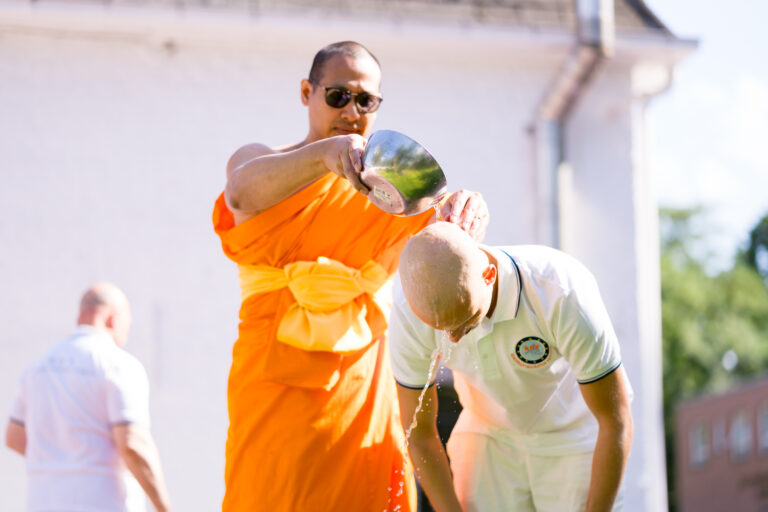
4.2 The Path
What intrigued me the most about Buddhism is its extreme practicality, with a strong focus on meditation and exploring the human mind. It is almost like a self-improvement version of spirituality, a guide to help you along your journey inward. It shows the way out of suffering through The Dharma (literally The Way/Path). We’re not just talking about the kind of deep suffering I was in before, but any kind of discontent, or unease. It shows the way to unfathomable peace and calm, and eventually, seeing reality more clearly, and undistorted. Reality as we know it is tainted by our conditioning, labeling, and judging which constantly happens involuntarily in our mind. Only through complete disidentification from the mind will we be able to see reality as it actually is. The main practice to achieve that is… you probably guessed it: meditation.
4.2.1 Self exploration
It is a path of Self-exploration. We believe we know who we are, but do we? If you strip away all the labels and roles you put on, like your gender, age, job, hobbies, et cetera. Strip away all the thoughts and emotions that are merely fleeting, do you still know? What is left when you strip away all that you think you are? You may have an intrinsic gut feeling of who/what you are, but through close observation you’ll find that even that is not you. Sorry about the vagueness, I’m afraid it comes with the field.
4.2.2 The fruits of The Path
Through practicing The Dharma we become more open, compassionate, and loving. We become more at ease and calm regardless of whatever life offers us. We see reality more clearly for what it is, we see the mind and its workings more clearly. Not as easily swayed by the constant stream of thoughts and emotions that the mind conjures up. Buddhism doesn’t just hold the promise of final salvation over our heads like a carrot on a stick, we become happier beings every step we take on the path.
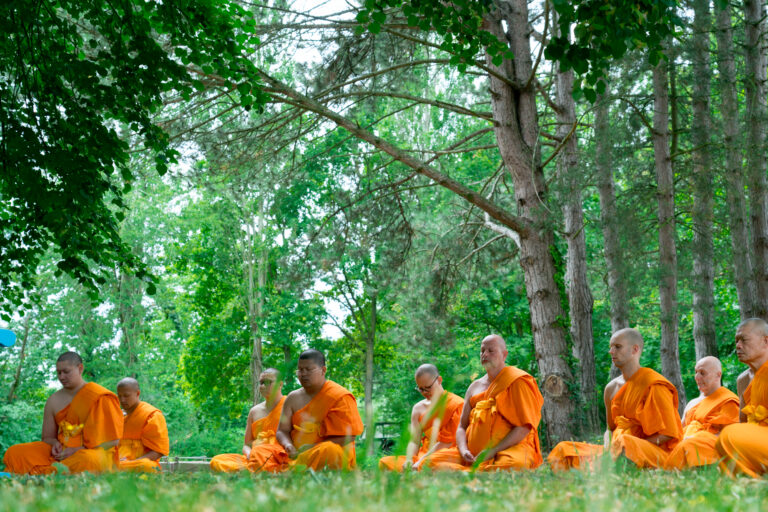
4.3 All-in
I found there is so much wisdom in Buddhism, especially about meditation, which resonated with me on the deepest level. I knew I was barely scratching the surface with this online course, so I decided I wanted to experience it firsthand. The true-est way to do that, I felt, was to become a Buddhist monk, in Asia. So that’s what I did. Becoming a Buddhist monk is no small feat. It is pretty much like going all-in with your life. I quit my job, discontinued my tenant contract, and left behind all my stuff, family, friends, and girlfriend to pursue my dream. Luckily they were incredibly supportive of me chasing that wild dream.
I already had in my mind I wanted to become a meditation teacher after experiencing the positive effects it had on me in the beginning. I really wanted to put my heart into this, as I can deeply relate to anyone trapped in their thinking mind. So I wanted to be able to properly help someone like myself back in the day.
By immersing myself in an experience like the Buddhist monkhood I got the best meditation teachings anyone can ever have. I was living with- and guided by Thai monks, some of whom have been monks for over 25 years. The way they can clearly explain inner experience and how to progress in your meditation practice is something I aspire to. I have learned so much that I can’t put everything into this one post. I am planning to make more blog posts about what I learned as a monk. But at least now you know ‘Why I became a Buddhist monk’.
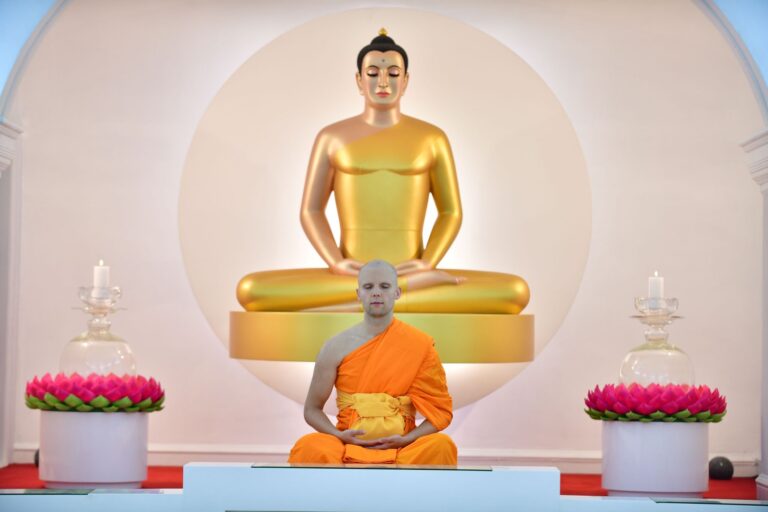
5. Conclusion
Meditation has brought me a long way, from constantly feeling the need to distract myself, to now enjoying the peace and quietude of stillness and just Being. I know there is so much more for me to learn. In meditation you really can go deeper and deeper, like a bottom-less pit.
For me it feels like meditation is the key to happiness. It gives me more clarity, better focus and a natural sense of wellbeing. These benefits positively impact every aspect of my experience. For anyone wanting to experience life more fully, and find some answers to its deep and meaningful questions, there is much to be found simply by investigating the inner dimension. The answers lie within. Look not for refuge in anyone besides yourself.
That was it. Thank you for taking the time out of your day to read this article. You’ve gotten to know a bit more about me, and my meditation journey. I hope you can take away something valuable. Work on yourself, and especiallly your mind. It is the best thing you can ever do for yourself. Try to take a few deep, conscious breaths before investing yourself in your next activity today and remember to be grateful for being alive right now. That being said, I hope you have a wonderful rest of your day! Much love.

